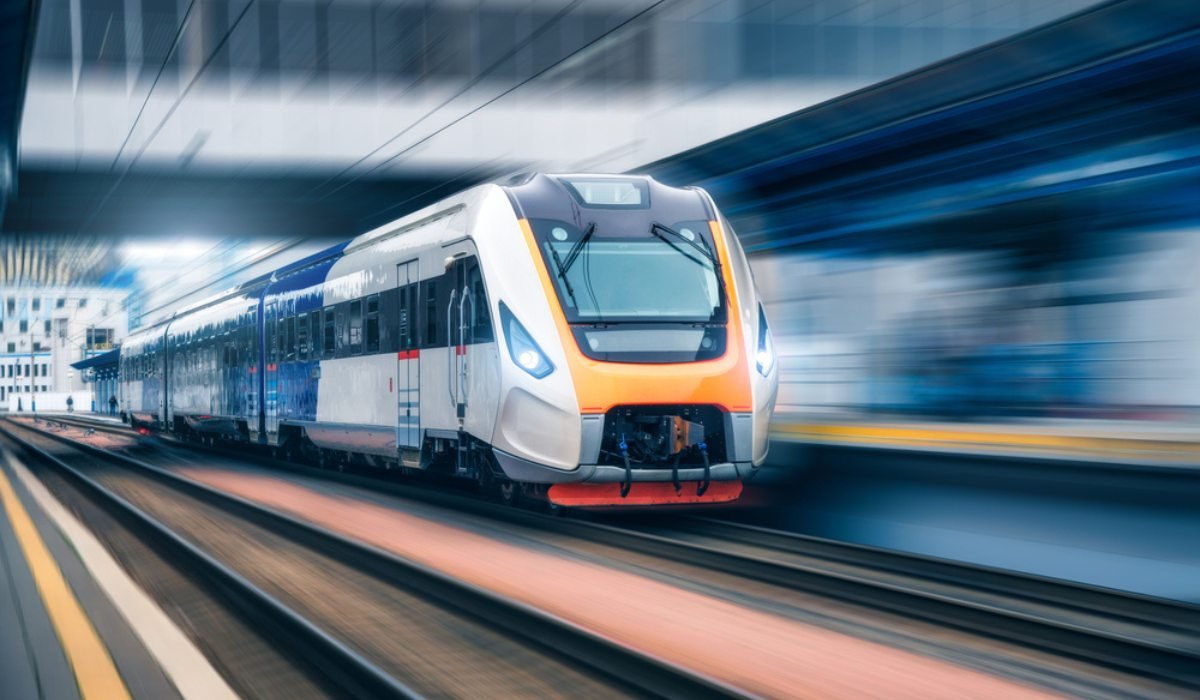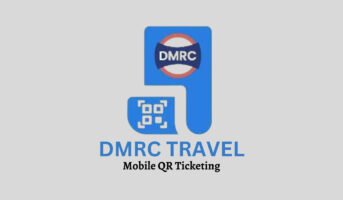The Indian railways serve as the lifeblood of the nation’s transportation system, bridging the gap between the country’s buzzing cities and its quietest corners. With the title of the world’s fourth-largest railway network, the responsibility for maintenance, expansion, and innovation in India’s rail sector falls to a handful of pivotal companies. Whether operated by the state or private entities, they are the leaders shaping the evolution of rail travel in India.
Discover the top 10 railway companies in India with this guide. Their prominence extends beyond just transportation; these railway companies also play an instrumental role in shaping urbanisation patterns and influencing the real estate spectrum as they lead the construction of stations, rail yards, and adjoining commercial spaces.
See also: Top 10 marble companies in India
Business landscape in India
Railways have historically played a pivotal role in India’s economic fabric, underpinning trade, tourism, and daily commutes. The primary custodian of this legacy is the Indian Railways, a state-owned entity, but in recent times, private players have also made significant inroads. Their participation spans various sectors, from rolling stock manufacturing to signal system upgrades and from station redevelopment to luxury train operations. As India marches towards modernisation and aims for infrastructural excellence, railway companies are gearing up to introduce high-speed trains, technologically advanced track systems, and smart stations. This transformative journey of the railway sector not only showcases India’s engineering prowess but also cements its position as an evolving industrial giant with a forward-looking vision.
Read also: Top milk companies in India
Top railway companies in India
Indian Railways
- Industry: Rail Transport
- Company Type: Statutory Body
- Location: New Delhi
- Founding Date: September 12, 1837
Indian Railways, a government-owned venture, oversees the expansive railway system crisscrossing India. Ranking as the world’s fourth-largest, it spans an impressive 68,043 km. Recent financial data from 2022-23 highlights a robust revenue of Rs. 2.44 Lakh Crores, reflecting a 27.75% jump from the prior year. The vision set for Indian Railways is both bold and green. Indian Railways, under the government’s vision, is on a transformative journey. The goal is to electrify its vast network by 2023-24. Moreover, they’re targeting a commendable milestone: zero carbon emissions by the year 2030.
Indian Railway Catering and Tourism Corporation (IRCTC)
- Industry: Railways
- Company Type: Public Sector
- Location: New Delhi
- Founding Date: September 27, 1999
IRCTC has fundamentally changed how the Indian populace interacts with the railway system. As an Indian public sector undertaking, it has brought ticket booking for Indian Railways online, transforming the way passengers plan their travel. IRCTC also oversees the catering and tourism services for the railways, thereby enhancing the overall passenger experience. Its technology solutions include SMS facilities to check PNR status and live train status, which is a step towards further digitising railway services in India.
High-Speed Rail Corporation of India (HSRCIL)
- Industry: Public Transport
- Company Type: Public Sector Undertaking, SPV
- Location: New Delhi
- Founded in: 2012
The High-Speed Rail Corporation of India is tasked with ushering in high-speed rail networks across India. As a specialised offshoot of Rail Vikas Nigam, HSRCIL dedicates its efforts to revamping current railway systems for high-speed train compatibility. A standout venture of theirs is the Mumbai–Ahmedabad high-speed track, with an anticipated launch in December 2026.
Rail Vikas Nigam (RVNL)
- Industry: Railway Infrastructure
- Company Type: Public Sector Undertaking
- Location: New Delhi
- Founding Date: January 24, 2003
Established in 2003, Rail Vikas Nigam acts as the developmental pillar for the Ministry of Railways. With a primary role of rapidly executing railway projects, RVNL addresses India’s growing infrastructural demands. It operates under the administrative control of the Indian Ministry of Railways and has been granted the status of a ‘Navratna’ Central Public Sector Enterprise, allowing it a greater degree of autonomy in decision-making.
Rail India Technical and Economic Service (RITES)
- Industry: Infrastructure
- Company Type: Public
- Location: Gurgaon
- Founded in: 1974
RITES is a multidisciplinary engineering and consultancy organisation with a focus on transport infrastructure. A Miniratna Category-I enterprise, RITES provides a wide range of services from concept to commissioning for various transport sectors such as railways, highways, airports, and inland waterways. The company also has a global footprint, offering consultancy and engineering services worldwide, making it a leading player in transport consultancy and engineering sectors.
Konkan Railway Corporation (KRCL)
- Industry: Railways
- Company Type: Public Sector Undertaking
- Location: Navi Mumbai
- Founding Date: July 19, 1990
Konkan Railway Corporation is a public sector enterprise under the administrative control of the Indian Ministry of Railways. The company’s operational rail route serves the coastal areas of Maharashtra, Goa, and Karnataka. Since starting its full operations on 26 January 1998, KRCL has contributed significantly to the development of these regions. The corporation is noted for its pioneering work in research and development, including the development of anti-collision devices and RORO services. Its primary goal has been to enhance the safety and operational efficiencies within the Indian Railway network, particularly in the challenging terrains of the Konkan region.
Container Corporation of India (CONCOR)
Industry: Transport
Company Type: Public
Location: New Delhi
Founding Date: March 1988
Container Corporation of India is a public sector company that specialises in the transportation and handling of shipping containers. Founded in 1988, CONCOR started operations in November 1989, taking over seven existing inland container depots from the Indian Railways. The company has recently been under consideration for privatisation, with the Indian Government planning to sell a 30.8% share out of its existing 54.8% ownership. The privatisation, aimed at increasing operational efficiencies, has been delayed, and the Indian Government has reduced land licensing fees to facilitate this process.
BEML
Industry: Defence, Mining, Rail & Construction
Company Type: Public Sector Undertaking
Location: Bangalore
Founding Date: 1964
BEML Limited, originally known as Bharat Earth Movers, is a public sector undertaking with a diversified portfolio including defence, mining, and rail. The company has nine manufacturing units across India and has achieved a turnover exceeding Rs. 3,500 crore. Currently, the Government of India holds a 54% equity share, while the remaining 46% is held by the public, banks, and other financial institutions. As a ‘Miniratna-Category-1’ PSU, BEML plays a significant role in India’s core sectors, contributing both to employment and technological advancements.
Ramkrishna Forgings
Industry: Railways, Automotive, Mining, Oil & Gas
Company Type: Public
Location: Kolkata
Founding Date: 1981
Ramkrishna Forgings is a publicly traded company founded in 1981. Serving as a key player in the supply chain, this company provides essential safety components, catering primarily to the automotive and railway industries. Their footprint is expansive, reaching both domestic and overseas markets. Top-tier OEMs like Tata Motors, Ashok Leyland, and Volvo count on them. With global aspirations and a dedication to quality and safety, they’re focused on delivering value to all associated parties.
Texmaco Rail & Engineering
Industry: Rail, Heavy Engineering, Infrastructure
Company Type: Private
Location: Kolkata
Founding Date: 1998
Texmaco Rail & Engineering is a private, multi-disciplinary engineering and infrastructure company with five manufacturing units situated over 170 acres around Kolkata. Founded in 1939 as Texmaco Ltd. by Dr. K.K. Birla, it later demerged to form the current entity. The company is part of the Adventz Group, under Chairman Mr. Saroj Kumar Poddar. Its operations extend from wagon manufacturing to heavy engineering, focusing on contributing significantly to India’s infrastructure growth. The company is an ISO: 9001-2008 certified entity, reflecting its commitment to quality and excellence.
Commercial real estate demand in India
Office space
New railway initiatives and expansions often require large office spaces, especially in major cities, thereby boosting the demand for commercial properties. As railway companies expand their operations, metropolitan areas like Delhi, Mumbai, Kolkata, and Chennai see a rise in demand for specialised office areas, preferably close to railway hubs.
Rental property
Employees working for these top railway companies, especially those in transit or in managerial roles, often seek rental accommodations near their workplaces. This results in a steady demand for rental properties in proximity to railway offices and yards. Moreover, vendors and service providers that collaborate with railway companies also tend to set up shops or offices nearby, further amplifying the demand.
Impact
The expansive nature of railway operations demands vast stretches of land, not just for tracks but also for yards, maintenance sheds, and stations. This extensive land utilisation has often spurred urban development in adjoining areas. Major railway hubs become nodes of commercial activities, with markets, hotels, and other services proliferating around them, subsequently enhancing the value and demand of real estate in those regions.
Impact of railway industry in India
As one of the world’s largest railway networks, it has not only connected diverse parts of India but also significantly impacted urbanisation patterns. Cities have grown and flourished around major railway junctions. Moreover, the railway industry has provided employment to millions, making it a pivotal player in India’s economic narrative.
The continuous interplay between railways and urban development has forged key transport corridors, enhancing connectivity and fostering business hubs. In essence, the railway industry has been instrumental in shaping India’s urban and economic landscapes, catalysing growth in associated sectors, including real estate.
FAQs
Which cities house the headquarters of most railway companies?
Prominent cities like Delhi, Mumbai, and Kolkata are central hubs for railway operations. These cities have a rich railway history and are home to major railway offices, influencing real estate prices and demand in key areas.
What's the rental for office spaces near major railway sectors?
Rentals near major railway hubs in metropolitan cities can vary, but they often range from Rs 100-Rs 150/sq ft per month. Proximity to railways offers better connectivity, making these areas prime choices for businesses.
Which regions have seen significant real estate growth due to railway developments?
Regions around major railway hubs like Delhi's Anand Vihar and Mumbai's Bandra Terminus have seen substantial real estate appreciation due to infrastructural developments.
How does rail connectivity influence property prices in metro cities?
In metro cities like Mumbai, Delhi and Bangalore, proximity to railway stations often leads to a surge in property prices due to enhanced connectivity and accessibility. However, exact prices vary based on the city and the specific location within that city.
Are there any real estate development projects around the Dedicated Freight Corridor (DFC)?
Yes, the DFC, once operational, is expected to spur industrial growth and real estate developments along its corridor, especially around logistics and warehousing hubs.
What are the upcoming railway projects that might influence real estate growth in India?
Projects like the Mumbai-Ahmedabad High-Speed Rail (Bullet Train) are expected to influence real estate growth in the connected regions, driving both residential and commercial developments.
Which cities in India are witnessing infrastructure expansion due to railway projects?
Besides the major cities, Nagpur, Jaipur, Lucknow and Kochi are seeing infrastructure development due to both new and expansion of existing railway projects.
How do railway companies contribute to commercial real estate development?
Railway companies, by developing stations and terminals, indirectly boost demand for retail spaces, hotels, and other commercial establishments in their vicinity.
Has the development of railway freight corridors influenced industrial real estate in India?
Absolutely. The development of dedicated freight corridors has spurred the growth of industrial hubs, logistics parks, and warehousing facilities along their routes.
| Got any questions or point of view on our article? We would love to hear from you. Write to our Editor-in-Chief Jhumur Ghosh at jhumur.ghosh1@housing.com |
Housing News Desk is the news desk of leading online real estate portal, Housing.com. Housing News Desk focuses on a variety of topics such as real estate laws, taxes, current news, property trends, home loans, rentals, décor, green homes, home improvement, etc. The main objective of the news desk, is to cover the real estate sector from the perspective of providing information that is useful to the end-user.
Facebook: https://www.facebook.com/housing.com/
Twitter: https://twitter.com/Housing
Email: editor@housing.com












